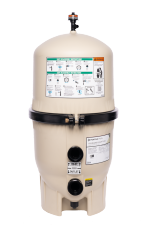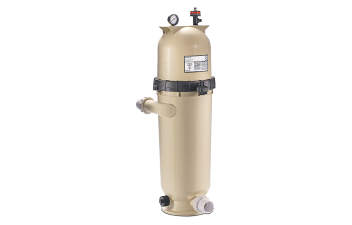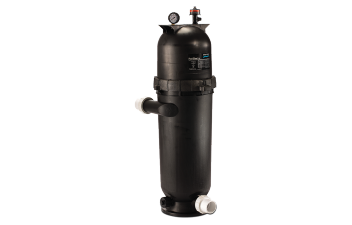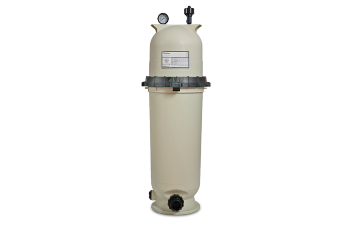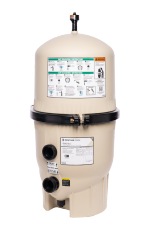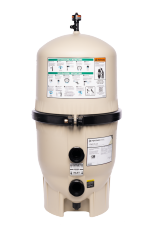- Pool & Spa
- Pool Education & Support
- Homeowner Support
- Pool Filter Product Safety & Help Center
Your safety is our priority. For your safety, Pentair recommends all filter maintenance be performed by a pool professional.
How to Safely Service Pentair Filters
Clean & Clear® Plus Cartridge Filter
How to Safely Service a
Clean & Clear Plus Cartridge Filter
Clean & Clear® RP & Posi-Clear® RP Cartridge Filter
How to Safely Service a
Clean & Clear RP & Posi-Clear RP Cartridge Filter
Clean & Clear® Cartridge Filter
How to Safely Service a
Clean & Clear Cartridge Filter
Quad D.E.® Cartridge Style Filter
How to Safely Service a
Quad D.E.® Cartridge Style Filter
FNS® Plus Filter
How to Safely Service a
FNS® Plus Filter
STAY S-A-F-E AROUND THE POOL
- Homeowner Resources
- Pool Pro Resources
Download the Pool Safety Kit
Get instant access
Want More Safety Tips? Receive seasonal pool safety tips and maintenance advice directly to your inbox? Sign Up Now
Let's keep pool time fun - and safe - for everyone.
Smart Steps for Pool Safety
Get Instant Access.
Want More Safety Tips? Receive seasonal pool safety tips and maintenance advice directly to your inbox? Sign Up Now
Be proactive. Be prepared. Be S.A.F.E.
Frequently Asked Questions
-
How can I tell if the model I am working with was made before or after August 2025?
-
The Warning sticker and clamp type are both clear indicators - SEE MORE
-
What should I do if severe winter weather causes a power outage?
-
- Turn off your breaker.
While you may not have power now, the first thing you should do is turn off all breakers to your pool so when the power does return, you can assess your pool in a controlled environment before everything turns back on and causes potential havoc. - Contact your dealer.
Not only can your dealer provide advice, but they also can add you to a waitlist for any necessary service and assistance when the weather does return to normal. If you don't know your pool dealer, use our Find a Dealer tool to assist you in locating a pool professional. - Remove lids.
In the event of an atypical snowstorm, frozen pool water expands and needs a place to go. To avoid cracking and damaging lids, we recommend removing pump pot and filter lids to avoid extra built-up pressure and provide extra space for any ice to go. - Open all valves.
Similar to removing lids, opening as many valves as you can, including the air relief valve on top of your filter, relieves pressure on the water that may be expanding within your equipment. - Remove all plugs.
Many of your plugs can also be removed to account for expanding water. Remove the pump pot plug, pump volute plug, the drain plugs next to the heater and the plug found at your dial valve. While most frozen plugs can be removed by hand, if needed, use a pair of pliers for extra leverage. - Disconnect your motor.
As an extra step of protection, homeowners can disconnect their motor from power, if able.
- Turn off your breaker.
-
What does a pool filter do?
-
Understanding your pool equipment pad and how everything works together is essential. Think of a pool as a person; the automation system is a bit like its brain, sending signals to the different body parts to ensure they're working accordingly. The chemicals you add to the pool water are like white blood cells, attacking germs and keeping the environment clean. And the filter? That would be the lungs of the pool. Filters take in dirty water, reduce contaminants, and push out cleaner water.
-
What tools do I need to clean a pool filter?
-
For filters Made BEFORE August 2025 - Your pool pro will need a ratchet wrench, a 7/8" socket, and a dead-blow hammer for a standard Quad DE Filter cleaning, as well as a PPE Mask for D.E. handling or recharging protection.
For filters Made AFTER August 2025 – The tools you will need for the clamp ring include: a 3/4" socket, ratchet, tongue and groove pliers, and a torque wrench for a standard Quad DE Filter, as well as a PPE Mask for D.E. handling or recharging protection.
You can help them out by having a garden hose with a spray attachment handy, as they will need to spray out the cartridges on a clean, hard surface.
Your pool pro may also occasionally soak the cartridges in a cleaning solution to get rid of oils like suntan lotion. You may see them using a commercial filter cleaner or a cup of trisodium phosphate to complete the job.
-
How often do I need to clean my pool filter?
-
Unfortunately, there's no easy answer on how frequently you should clean your pool filter. You'll have to consider a few different factors, including the length of your pool season, the amount of debris like leaves and oak catkins in your backyard, and your specific type of pool and filter. Your neighborhood pool professional can help you narrow in on how often a pool filter should be rinsed at your unique pool.
Fortunately, the Clean & Clear Plus Filter has a gauge that makes it easy to predict when it's time for a cleaning. Once the pressure gauge shows that the system is running at 10 PSI higher than its starting pressure, you'll know it's time to clean your pool filter. The Clean & Clear RP Cartridge Pool Filter has a similar feature – when the pressure reads between 8 to 10 psi higher than its starting pressure, the filter is getting clogged with debris and needs to be cleaned.
-
Where can I find information on maintaining my Pentair pool filter?
-
If you have a Clean & Clear Plus Filter, we have a video on how to safely clean it. You can also find information on the Clean & Clear series of filters and other products in the installation and user guides.
With any product, be sure to glance at the warning labels before using it. This label highlights anything you should be aware of, from steps you can take to reduce risk to possible operational errors to avoid. Your safety is essential.
-
What safety issues should I be aware of with pool filters?
-
Your approach to cleaning may vary depending on the type of filter at your pool, so it is important to read and follow manual instructions carefully. One primary safety consideration for all filter cleanings is the risk of trapped air. If air becomes trapped and is not released, it can compress and cause pressure to build. That pressure may cause the lid to separate from the base, which is a serious safety hazard and can be especially injurious if you are standing close.
This is why you should find a pool professional to handle this service. Trained experts know how to prevent this from happening, and they can answer any questions you have about your pool, too.
-
What important step do I need to take before cleaning my pool filter?
-
Before you even think about disassembling your pool filter, put your automation system into service mode to ensure the pump doesn't unexpectedly start. If your pool doesn't have an automation system, you can skip this step.
Next, head over to the breakers in your control panel to turn off power to all pool features. This step is essential, as you want to prevent your pool equipment from turning on until all maintenance is satisfactory.
When you are finished, one of the most important steps before restoring power to the system is to open the manual air relief valve to evacuate trapped air.
-
How long does it take to clean a pool filter?
-
You can expect the process of disassembling, cleaning, reassembling, and restarting a pool filter to take at least 60 minutes.
-
What tools do I need to clean a pool filter?
-
Your pool pro will need a ratchet wrench, a 7/8" socket, and a dead-blow hammer for a standard Clean & Clear Plus Filter cleaning. You can help them out by having a garden hose with a spray attachment handy, as they will need to spray out the cartridges on a clean, hard surface.
Your pool pro may also occasionally soak the cartridges in a cleaning solution to get rid of oils like suntan lotion. You may see them using commercial filter cleaner or a cup of trisodium phosphate to complete the job. This is an excellent way to clean pool cartridge filter algae, too.
-
How do I know if the pool filter is not working properly?
-
After service is completed and your filter is restarted, you'll know there's a problem if a solid stream of water does not appear within 30 seconds or if water leaks from the two halves of the filter. Another thing to watch for is if the Clean & Clear Filter gauge indicates pressure before water outflow appears. If these problems appear, shut off the pump immediately.
Before attempting to address any observable leaks, always turn off the power, open the manual air relief valve to relieve all pressure, stand clear of the filter, and wait until all pressure is relieved and the gauge is at zero.
-
What do I do if the Clean and Clear Cartridge Filter’s gauge experiences a pressure drop?
-
- Ensure the water in the pool is at the proper level.
- Check skimmer baskets for debris.
- Clean pump pot basket.
If further assistance is needed, please contact a qualified and licensed pool professional.
-
Is there anything else I need to know?
-
For more helpful tricks and tips, you can visit the Pentair Pool Education Center.
Pentair cartridge filters, like many pool products, require that you closely follow the proper steps and procedures, and professionals know those best. However, if you do attempt service yourself, use the resources on this page to walk you through the safest and best way to clean pool filters.
Don't see your product listed yet?
Contact our support team to help you out!
Need a helping hand?
Our knowledgeable customer service representatives are ready to assist you.
Find A Dealer!
Connect with a Pentair Pool and Spa Equipment dealer near you.
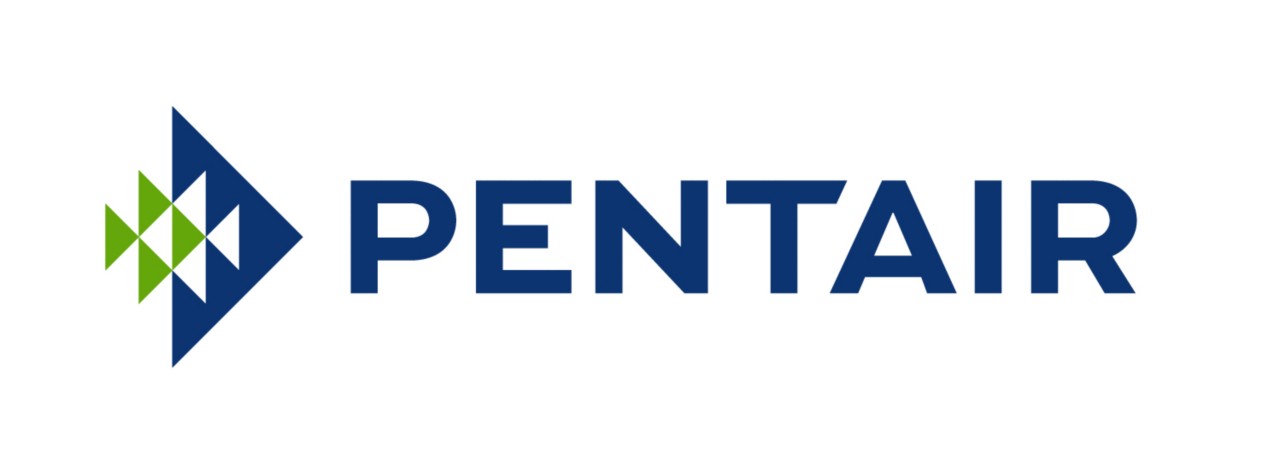
When operating, maintaining, and/or replacing cartridges for a non-Pentair manufactured filter, please consult your original equipment manufacturer’s operation and maintenance manual, safety instructions, and warnings.
DO NOT rely on the instructional videos or other guidance materials contained on this webpage to operate or maintain your non-Pentair manufactured filter.


